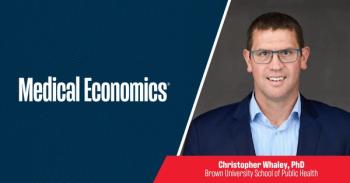
What older and younger doctors can learn from each other
Generational differences can be a source of conflict, but they can also result in better medicine.
Key Points
Gordon Cotell, MD, thinks today's younger doctors have it easy compared to what he experienced.
And Cotell should know: These days, the seven-physician practice is made up of a mix of older and younger doctors. In this way, North Shore offers an interesting cross section of perspectives on the differences between older and younger doctors.
On the other hand, Cotell has frequently benefited from younger colleagues' greater technological savvy. "They have often helped me [improve my skills] on the computer and with electronic medical records," he says (see sidebar).
Daniel Berman, MD, 35, joined North Shore three years ago. Call hours were one of the factors that influenced his decision. "I thought it was going to be every sixth weekend, which would have been fine, but it turned out to be every seventh weekend and every Monday, which is even better than I hoped for," he says.
While Berman has helped Cotell and some of the older doctors become more comfortable using computers, the elder doctors in turn have helped him improve the way he relates to patients. "There's definitely a lot of give and take," Berman says.
Cotell's and Berman's experiences typify what many practices go through as they try to accommodate the differing needs and perspectives of older and younger doctors. The challenge is made greater by the relative slowness of the generational shift taking place. According to the American Academy of Family Physicians, the median age of its members has increased from 44.8 in 1996 to 46.7 in 2008. About 55 percent of AAFP's practicing members are age 45 or older.
While generational differences can be a source of conflict, they can also result in better-quality medicine, as doctors of different ages share knowledge and capitalize on each other's strengths. "In practices, each person brings a different skill set and different perspective," says Jennifer Zarate, president and CEO of Professional Medical Staff Associates in Olathe, Kansas. "No one person can know everything, and by exchanging new ideas, everyone wins-especially the patients."
Newsletter
Stay informed and empowered with Medical Economics enewsletter, delivering expert insights, financial strategies, practice management tips and technology trends — tailored for today’s physicians.






